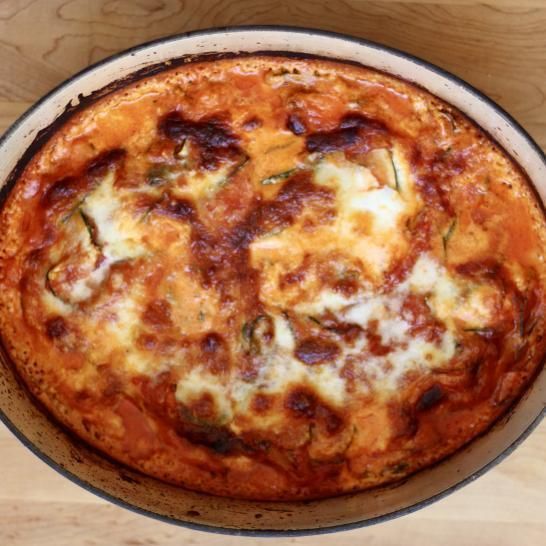The Mediterranean Diet Really Is That Good for You. Here’s Why.
The Mediterranean Diet Really Is That Good for You. Here’s Why.
It has become the bedrock of virtuous eating. Experts answer common questions about how it leads to better health.

In the 1950s, researchers from across the globe embarked on a sweeping and ambitious study. For decades, they scrutinized the diets and lifestyles of thousands of middle-aged men living in the United States, Europe and Japan and then examined how those characteristics affected their risks of developing cardiovascular disease.
The Seven Countries Study, as it later became known, famously found associations between saturated fats, cholesterol levels and coronary heart disease. But the researchers also reported another notable result: Those who lived in and around the Mediterranean — in countries like Italy, Greece and Croatia — had lower rates of cardiovascular disease than participants who lived elsewhere. Their diets, rich in fruits, vegetables, legumes, whole grains, nuts, seeds, lean proteins and healthy fats, seemed to have a protective effect.
Since then, the Mediterranean diet has become the bedrock of heart-healthy eating, with well-studied health benefits including lower blood pressure and cholesterol, and a reduced risk of Type 2 diabetes.
“It’s one of a small number of diets that has research to back it up,” said Dr. Sean Heffron, a preventive cardiologist at NYU Langone Health. “It isn’t a diet that was cooked up in the mind of some person to generate money. It’s something that was developed over time, by millions of people, because it actually tastes good. And it just happens to be healthy.”
Here are some of the most searched questions about the Mediterranean diet, answered by experts.
What exactly is the Mediterranean diet?
The Mediterranean diet isn’t as much a strict meal plan as it is a lifestyle, said Julia Zumpano, a registered dietitian who specializes in preventive cardiology at the Cleveland Clinic in Ohio. People who follow the Mediterranean diet tend to “eat foods their grandparents would recognize,” Dr. Heffron added: whole, unprocessed foods with few or no additives.
The diet prioritizes whole grains, fruits, vegetables, legumes, nuts, herbs, spices and olive oil. Fish rich in omega-3 fatty acids, like salmon, sardines and tuna, are the preferred animal protein source. Other lean animal proteins, like chicken or turkey, are eaten to a lesser extent. And foods high in saturated fats, like red meat and butter, are eaten rarely. Eggs and dairy products like yogurt and cheese can also be part of the Mediterranean diet, but in moderation. And moderate alcohol consumption, like a glass of wine at dinner, is allowed.
Breakfast might be smashed avocado on whole-grain toast with a side of fresh fruit and a low-fat Greek yogurt, Dr. Heffron said. For lunch or dinner, a vegetable and grain dish cooked with olive oil and seasoned with herbs — roasted root vegetables, leafy greens, a side of hummus and small portions of pasta or whole grain bread, with a lean protein like grilled fish.
“It’s very easy to follow, very sustainable, very realistic,” Ms. Zumpano said.
What are the health benefits of the Mediterranean diet?
A number of rigorous studies have found that the Mediterranean diet contributes to better health, and in particular better heart health, in a variety of ways. In one study, published in 2018, researchers assessed nearly 26,000 women and found that those who followed the Mediterranean diet most closely for up to 12 years had about a 25 percent reduced risk of developing cardiovascular disease. This was mainly because of changes in blood sugar, inflammation and body mass index, the researchers reported. Other studies, in men and women, have reached similar conclusions.
Research has also found that the diet can protect against oxidative stress, which can cause DNA damage that contributes to chronic conditions like neurological disease and cancer. And some studies suggest it can help reduce the risk of developing Type 2 diabetes.
The diet may also have profound health benefits during pregnancy, said Dr. Anum Sohail Minhas, an assistant professor of medicine at Johns Hopkins Medicine. In a recent study of nearly 7,800 women published in December, researchers found that those who followed the Mediterranean diet most closely around the time they conceived and during early pregnancy had about a 21 percent reduced risk of any pregnancy complications, such as pre-eclampsia, gestational diabetes or preterm birth.
“There definitely seems to be a protective effect,” Dr. Minhas said.
On its own, though, the Mediterranean diet isn’t a panacea, Dr. Heffron said — it won’t eliminate your chances of developing cardiovascular disease, and it won’t cure a disease, either. It’s important that people also pay attention to other tenets of good heart health, like getting regular exercise and adequate sleep and not smoking.
Will the Mediterranean diet help with weight loss?
The diet can be conducive to weight loss, Ms. Zumpano said, but you’ll still need to pay attention to calories.
“Nutrient-rich foods aren’t necessarily low in calories,” said Dr. Heffron, who noted that the diet includes foods like olive oil and nuts, which are heart-healthy yet high in calories and can lead to weight gain if consumed in large portions. But if you’re changing your diet from one that is rich in calories, saturated fats and added sugars, for instance, with one that prioritizes vegetables, fruits and leaner proteins, that can result in some weight loss, he said.
The Mediterranean diet is not meant to be a hack for rapid weight loss, though. Rather, it should inspire a long-term shift in eating behavior. In one study of more than 30,000 people living in Italy, for instance, researchers found that those who followed the Mediterranean diet most closely for about 12 years were less likely to become overweight or obese than those who followed the diet less closely. A smaller study, published in 2020, enrolled 565 adults who had intentionally lost 10 percent or more of their body weight in the year prior. It found that those who reported adhering to the Mediterranean diet closely were twice as likely to maintain their weight loss as those who did not closely follow the diet.
How long do you need to follow the Mediterranean diet to gain benefits?
If you’re just starting to follow the Mediterranean diet, limited evidence suggests that you may notice some cognitive improvements — including in attention, alertness and contentment, according to one review of studies published in 2021 — within the first 10 days or so. But for there to be sustained, long-term payoffs in terms of heart health, people need to stick with it, Ms. Zumpano said, ideally for their whole lives.
That being said, she added, the diet allows for some flexibility; the occasional cake or steak won’t undo its overall benefits.
Are there any downsides to trying the Mediterranean diet?
The diet usually provides a balanced blend of nutrients and adequate protein, so typically there are no significant risks associated with following it, Dr. Heffron said.
But because the diet recommends minimizing or avoiding red meat, you may want to make sure that you are getting enough iron. Good sources of iron include nuts, tofu, legumes and dark leafy green vegetables like spinach and broccoli. Foods rich in vitamin C, like citrus, bell peppers, strawberries and tomatoes, can also help your body absorb iron. And because the diet minimizes dairy, you may want to speak with your doctor about whether you need to take a calcium supplement.
However for the average person, the benefits of the Mediterranean diet likely far outweigh any potential negatives, Dr. Minhas said. “These are things we can all try to incorporate into our lives.”
- from The New York Times article
Healthy Bites















